
Akanda National Park: Gabon's Coastal Jewel
Nestled along Gabon's northeastern coast, Akanda National Park is a hidden gem waiting to be explored. This stunning park is renowned for its lush mangrove forests, pristine beaches, and abundant wildlife. Visitors can expect to encounter a diverse range of bird species, including the rare African grey parrot, as well as various marine life in the park's waterways. Akanda National Park is a paradise for nature lovers and adventure seekers alike. The park offers numerous hiking trails that wind through its dense forests and along its scenic coastline. Kayaking through the mangroves is a popular activity, providing a unique perspective on the park's rich ecosystem. The park's beaches are also perfect for relaxation and picnics, with their golden sands and tranquil waters inviting visitors to unwind. In addition to its natural beauty, Akanda National Park holds cultural significance for the local communities. Traditional fishing villages dot the coastline, offering visitors a glimpse into the daily lives of the park's human inhabitants. Engaging with these communities can provide a deeper understanding of the region's heritage and the importance of conservation efforts. Whether you're an avid birdwatcher, a hiking enthusiast, or simply seeking a peaceful retreat, Akanda National Park promises an unforgettable experience.
Local tips in Akanda National Park
- Visit during the dry season (June to September) for the best wildlife viewing opportunities.
- Bring insect repellent to protect against mosquitoes, especially when exploring the mangrove forests.
- Hire a local guide to gain deeper insights into the park's flora, fauna, and cultural heritage.
- Pack light, breathable clothing and sturdy footwear for hiking and other outdoor activities.
- Don't forget your binoculars for birdwatching and a camera to capture the park's stunning landscapes.
Akanda National Park: Gabon's Coastal Jewel
Nestled along Gabon's northeastern coast, Akanda National Park is a hidden gem waiting to be explored. This stunning park is renowned for its lush mangrove forests, pristine beaches, and abundant wildlife. Visitors can expect to encounter a diverse range of bird species, including the rare African grey parrot, as well as various marine life in the park's waterways. Akanda National Park is a paradise for nature lovers and adventure seekers alike. The park offers numerous hiking trails that wind through its dense forests and along its scenic coastline. Kayaking through the mangroves is a popular activity, providing a unique perspective on the park's rich ecosystem. The park's beaches are also perfect for relaxation and picnics, with their golden sands and tranquil waters inviting visitors to unwind. In addition to its natural beauty, Akanda National Park holds cultural significance for the local communities. Traditional fishing villages dot the coastline, offering visitors a glimpse into the daily lives of the park's human inhabitants. Engaging with these communities can provide a deeper understanding of the region's heritage and the importance of conservation efforts. Whether you're an avid birdwatcher, a hiking enthusiast, or simply seeking a peaceful retreat, Akanda National Park promises an unforgettable experience.
When is the best time to go to Akanda National Park?
Iconic landmarks you can’t miss
Lopé National Park
Explore Lopé National Park, a UNESCO World Heritage Site in Gabon, where nature, culture, and adventure converge in breathtaking landscapes.
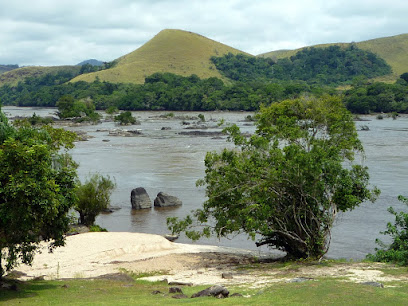
Ecosysteem en cultuurlandschap van Lopé-Okanda
Explore the diverse ecosystems and rich cultural heritage of Lopé-Okanda National Park, a stunning Gabonese gem for nature lovers and adventurers alike.

Unmissable attractions to see
Church of St. Michael Nkembo
Discover Libreville's artistic soul: The Church of St. Michael Nkembo, where Gabonese artistry meets biblical storytelling in a sacred space.
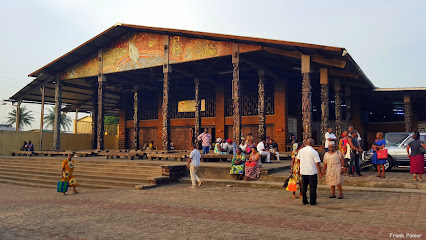
Tsunami
Experience thrilling slides and relaxing pools at Libreville's premier water park, a perfect family escape for a day of aquatic fun!
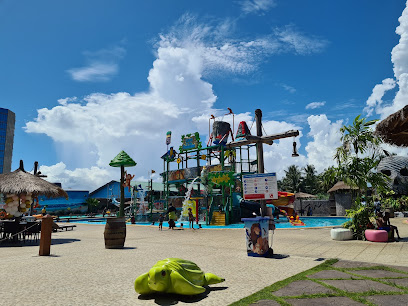
National Museum of Arts, Rites and Traditions of Gabon
Discover Gabon's cultural heart at the National Museum of Arts, Rites and Traditions in Libreville. Explore traditional masks, sculptures, and more!
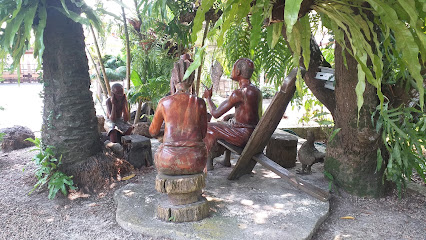
The Bay Of Kings
Discover the Bay of Kings in Libreville: Where stunning coastal views meet Gabonese culture and history on the shores of the Atlantic Ocean.
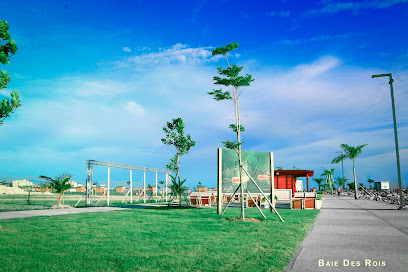
Notre Dame de Lourdes
Discover the serene beauty and spiritual significance of Notre Dame de Lourdes, an architectural gem in the heart of Libreville, Gabon.
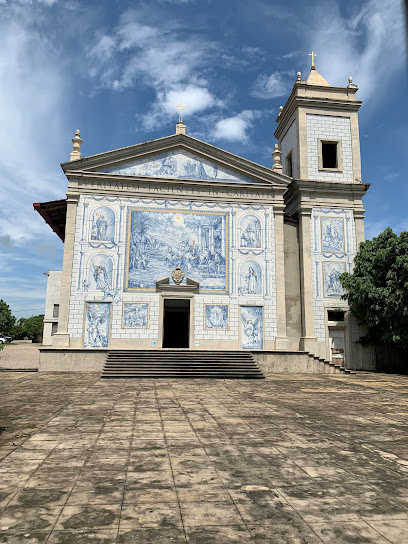
Seaside Libreville
Discover Seaside Libreville: Gabon's coastal paradise with stunning views, vibrant culture, and unforgettable experiences along the Atlantic Ocean.
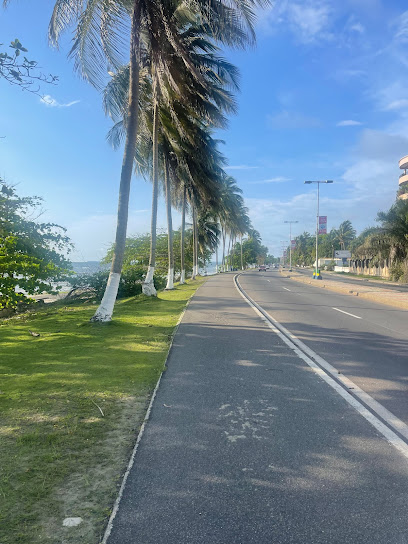
Ikouka Beach
Discover Ikouka Beach in Akanda: a serene coastal paradise within Gabon's Akanda National Park, offering relaxation and natural beauty.
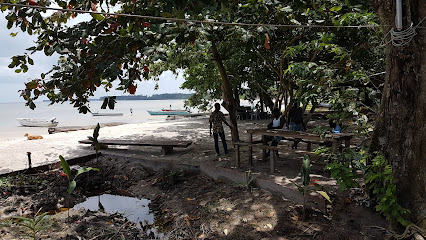
Beach Park
Explore the tranquility of Beach Park, a serene city park in Libreville, where nature and relaxation converge in a lush green oasis.
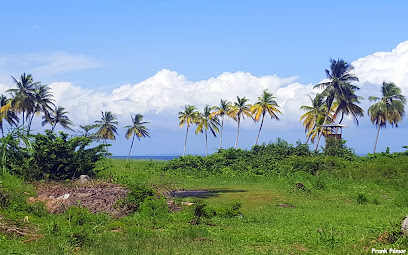
Cap Esterias
Discover Cap Esterias: A serene Gabonese escape with stunning beaches, lush nature, and vibrant local markets, just north of Libreville.
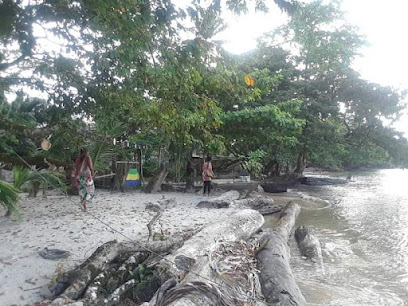
Mausolée Léon M'ba
Discover the legacy of Gabon's first president at the Mausolée Léon M'ba, a symbol of national pride and a key historical landmark.
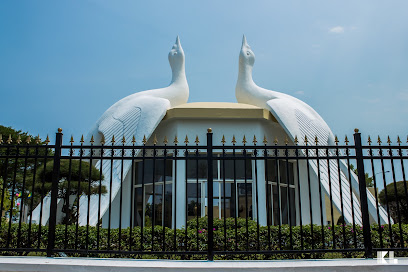
ANPN Cellule Scientifique
Explore ANPN Cellule Scientifique, a stunning national park in Libreville, showcasing Gabon's rich biodiversity and serene natural beauty.
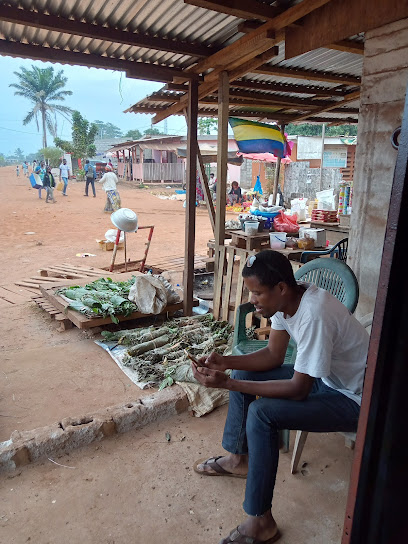
Plage Nord
Discover Plage Nord in Libreville: a serene beach escape offering relaxation and natural beauty on Gabon's Atlantic coast.
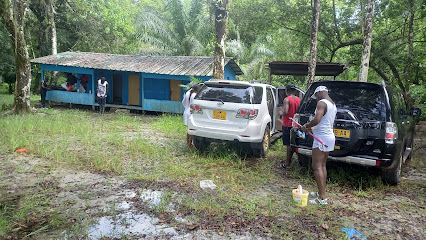
Igoumié aux chevaux
Explore the serene landscapes of Igoumié aux chevaux, a tranquil park in Libreville perfect for leisure and relaxation.

PK0
Explore PK0 in Libreville, a serene tourist attraction showcasing Gabon's natural beauty and rich cultural heritage for an unforgettable experience.

La Marche Pro Libreville
Escape to nature in Libreville: Hiking, camping, and adventure await at La Marche Pro, a tranquil retreat from the city bustle.
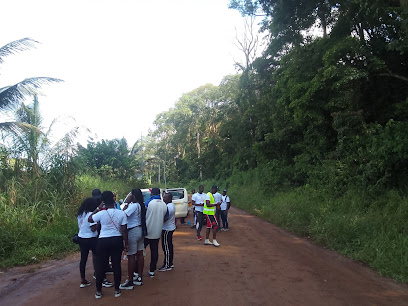
Essential places to dine
Le Moulin d'Okala
Discover the culinary delights of Le Moulin d'Okala in Libreville - where bakery treats meet vibrant dining experiences.
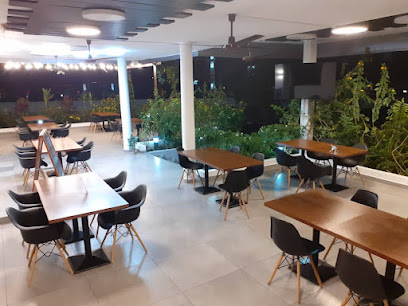
Amigo's Restaurant
Experience authentic Gabonese cuisine at Amigo's Restaurant in Libreville - where every dish tells a story.
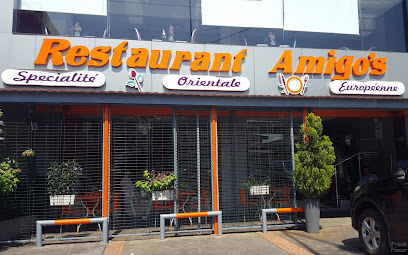
L'Odika
Experience authentic Gabonese cuisine at L'Odika in Libreville—where every dish reflects the heart and soul of Africa's culinary heritage.
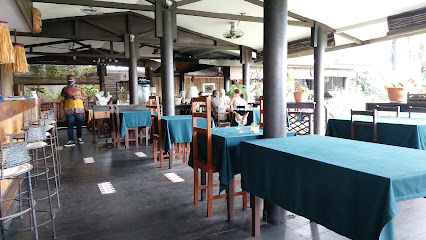
Idiora Restaurant-Bar
Discover Idiora Restaurant-Bar in Libreville: A perfect blend of local flavors and vibrant atmosphere awaits you!
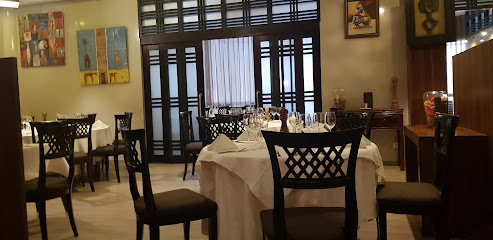
Restaurant Le Chef Omiel Akanda
Experience fine dining at its best with exquisite flavors and impeccable service at Restaurant Le Chef Omiel in Akanda.
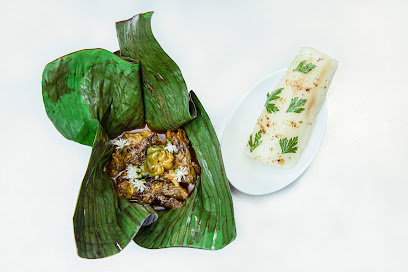
Restaurant Okande
Experience authentic Gabonese cuisine at Restaurant Okande in Libreville – where every dish tells a story of rich cultural heritage.
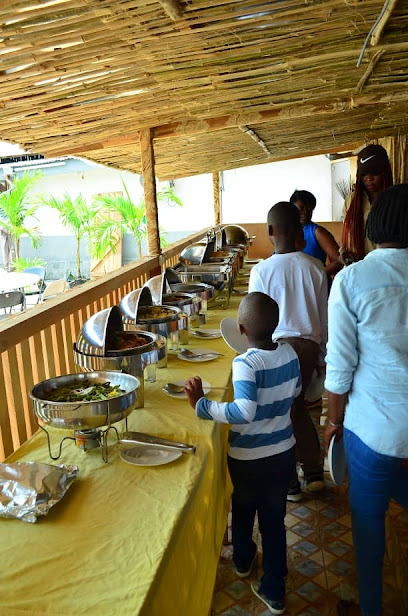
HAMA BURGER N’ CO
Discover the ultimate burger experience at HAMA BURGER N’ CO in Akanda - where every bite is an explosion of flavor!
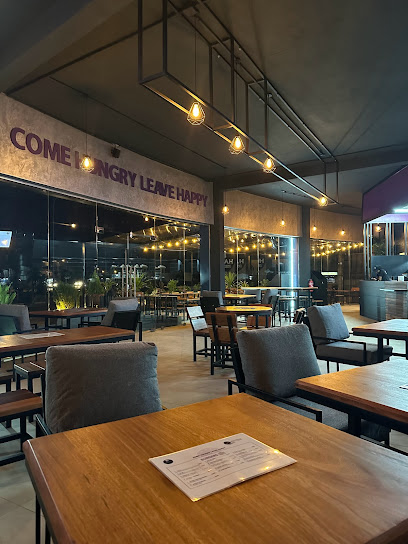
Le Capo Nord
Experience an exquisite buffet at Le Capo Nord in Akanda, where diverse flavors meet a welcoming atmosphere.
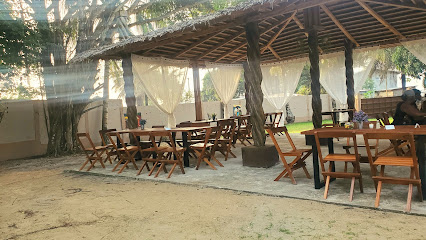
Gabon Food
Discover the authentic tastes of Gabon at this charming restaurant in Akanda, where every dish showcases local flavors and culinary traditions.
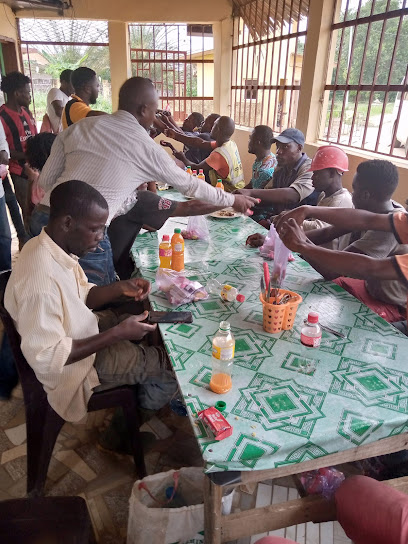
Restaurant IDOLO
Experience authentic Gabonese cuisine at Restaurant IDOLO in Akanda – where every dish tells a story.
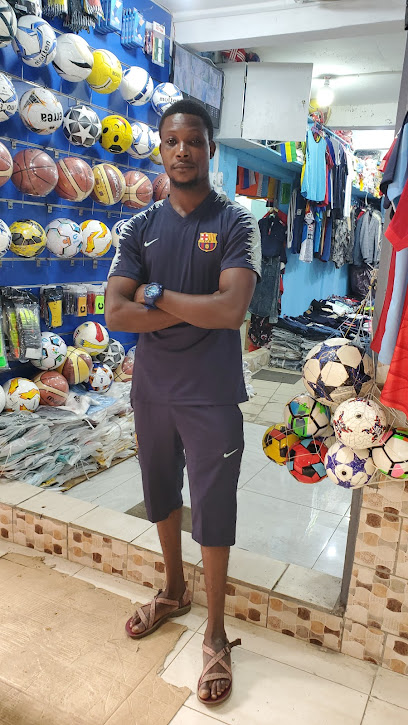
Le Mandela Lounge Libreville
Experience authentic Gabonese barbecue at Le Mandela Lounge in Libreville - where flavors meet culture in a vibrant setting.

Exotica Restaurant
Discover the vibrant flavors of Libreville at Exotica Restaurant - where diverse cuisine meets an inviting atmosphere.
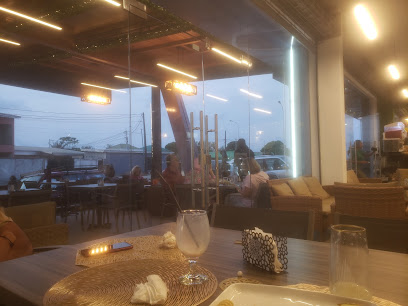
The Roaring Lion
Experience the vibrant flavors of Akanda at The Roaring Lion – where grilling meets tradition in a cozy setting.
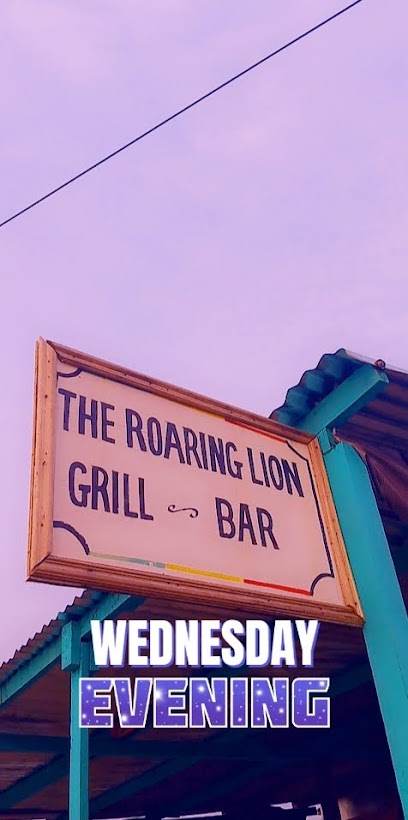
Parking Restaurant
Experience authentic local flavors at Parking Restaurant in Akanda, where every dish tells a story of culinary heritage.
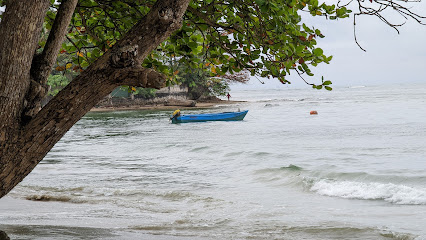
Mazoudzi
Experience authentic Gabonese cuisine at Mazoudzi in Libreville's vibrant artisan village - a culinary journey you won't forget.
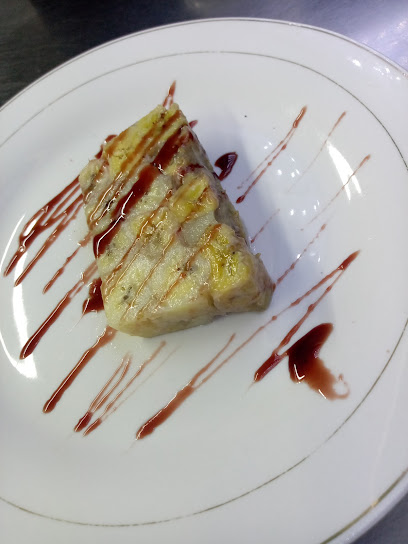
Markets, malls and hidden boutiques
Village des Artisans
Explore the vibrant Village des Artisans in Libreville, where local handicrafts and Gabonese culture come to life in a colorful marketplace.
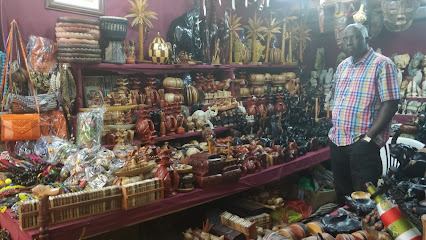
OKANI CONCEPT STORE
Explore local treasures and unique goods at OKANI Concept Store, the heart of Libreville's shopping experience, showcasing Gabonese culture and craftsmanship.
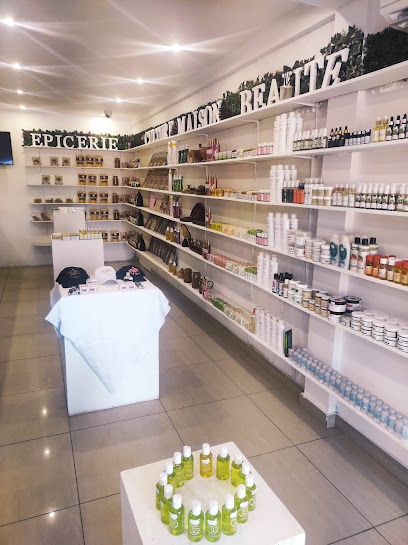
Akanda Shopping
Explore the vibrant local culture at Akanda Shopping, a convenient stop for snacks, essentials, and unique Gabonese souvenirs in Libreville.

Essential bars & hidden hideouts
Lamaia Lounge Bar & Restaurant
Experience the vibrant culinary scene at Lamaia Lounge Bar & Restaurant in Libreville, where French cuisine meets a lively ambiance.
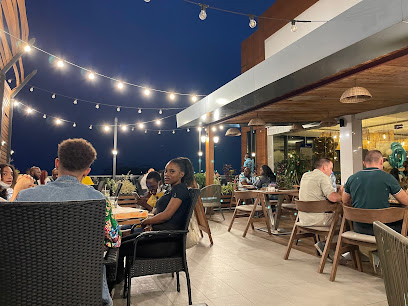
Angondje Chateau
Experience the vibrant nightlife at Angondje Chateau, a local bar in Libreville offering a delightful mix of drinks and a lively atmosphere.
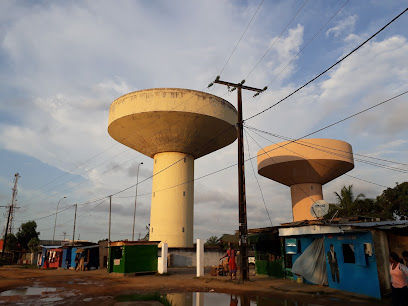
Yoka Sports Bar
Experience the lively atmosphere and diverse drink offerings at Yoka Sports Bar in Libreville, the perfect social hub for tourists and locals.
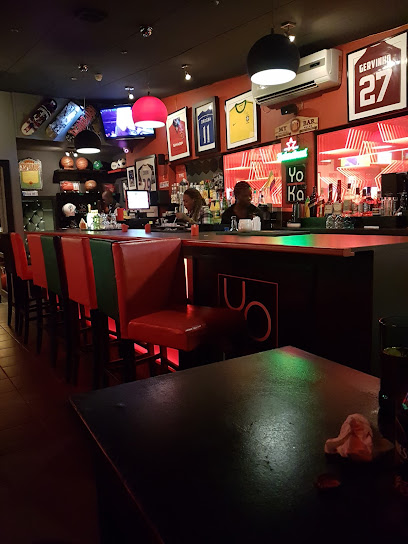
Factory Bar Grill
Discover the lively ambiance and delicious local cuisine at Factory Bar Grill in Libreville, a top spot for an unforgettable dining experience.
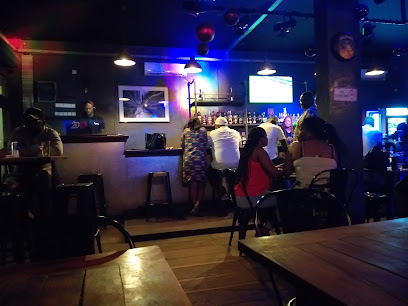
Entre nous Restaurant & Bar
Experience the vibrant flavors of Libreville at Entre Nous Restaurant & Bar, where local cuisine meets a lively atmosphere.
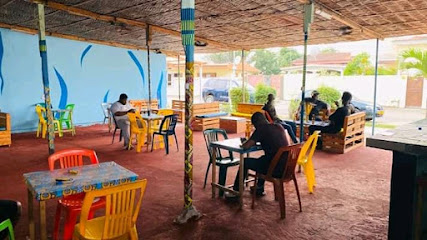
OKLM Bar Lounge
Experience the vibrant nightlife of Libreville at OKLM Bar Lounge, where stylish ambiance meets delicious cocktails in a welcoming atmosphere.
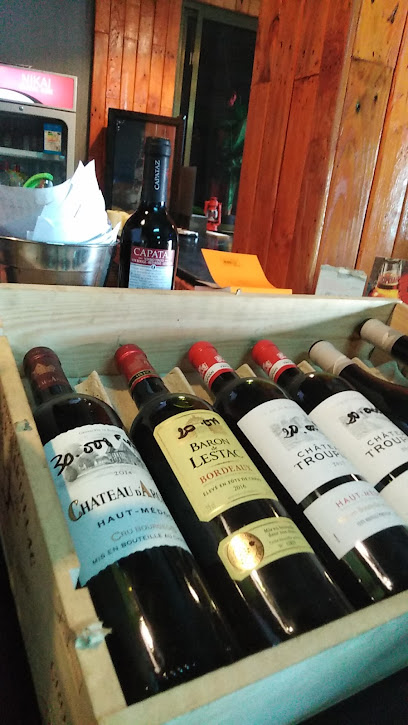
Le Stone
Discover the lively ambiance of Le Stone, a premier bar and lounge in Libreville, where exquisite cuisine and vibrant nightlife blend seamlessly.
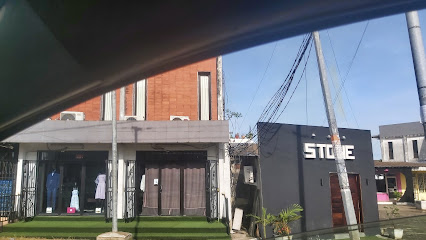
PELICAN BAR-RESTO
Experience the vibrant nightlife at Pelican Bar-Resto in Libreville, where refreshing drinks and lively atmosphere await.
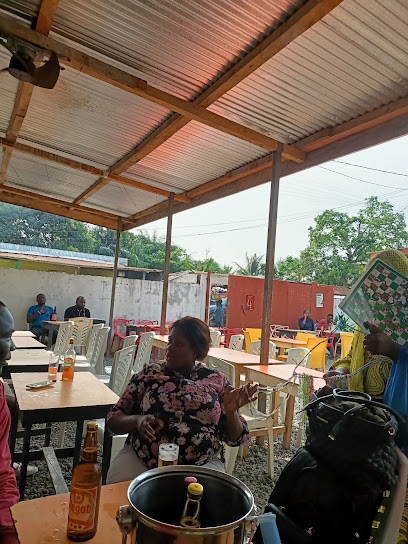
CABANA CHILL BAR & FOOD
Discover the vibrant atmosphere and delicious offerings at Cabana Chill Bar & Food, the perfect lounge experience in Libreville.
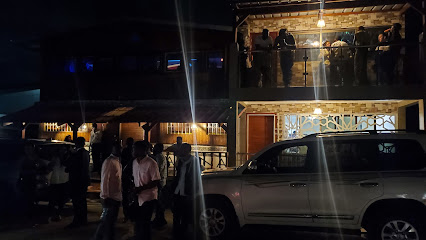
The Black Moon
Discover the vibrant atmosphere of The Black Moon, a chic lounge in Libreville perfect for cocktails and socializing after a day of exploration.
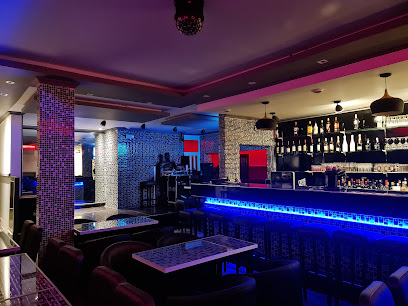
La Terrasse D’amissa
Experience the vibrant nightlife at La Terrasse D’amissa, Agondje's favorite bar for grilled delights, cocktails, and hookah fun.
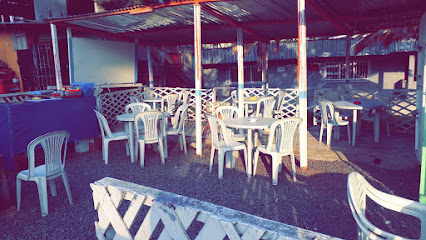
La terrasse de MCD
Experience the vibrant atmosphere and delicious cuisine at La Terrasse de MCD, the premier lounge in Libreville, Gabon.
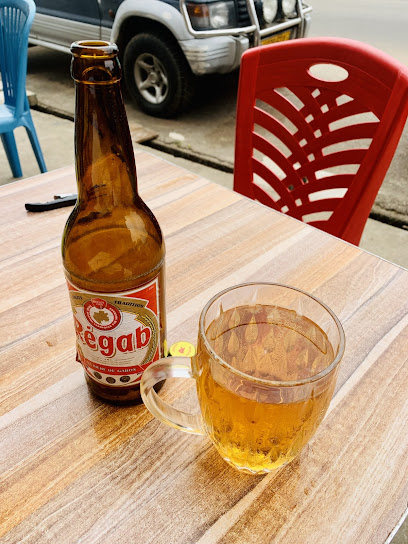
LE SMYRNE CHEZ YA SOS
Discover the lively spirit of Gabonese nightlife at Le Smyrne Chez Ya Sos, a top live music bar in Libreville, where culture and rhythm blend seamlessly.

BERMUDA GAME-LOUNGE
Discover the vibrant nightlife at Bermuda Game-Lounge in Libreville, where relaxation meets entertainment in a lively atmosphere.

Le Saloon Bar
Discover the vibrant atmosphere of Le Saloon Bar in Libreville, where relaxation meets entertainment, making it a must-visit lounge for tourists.
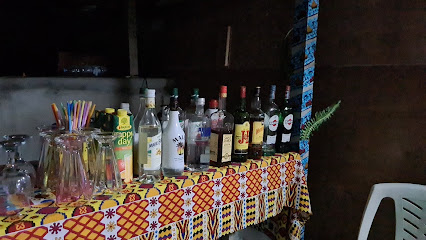
Local Phrases about Akanda National Park
-
- HelloMbolo
[em-boh-loh] - GoodbyeOrevwa
[oh-rehv-wah] - YesEwe
[eh-weh] - NoTe
[teh] - Please/You're welcomeMesi
[meh-see] - Thank youMesi
[meh-see] - Excuse me/SorryN'tondi
[en-tohn-dee] - How are you?Unjani?
[oon-jah-nee] - Fine. And you?Njani. Wena?
[njah-nee. weh-nah] - Do you speak English?Ukhuluma isiNgisi?
[oo-khoo-loo-mah ee-see-ngi-see] - I don't understandAndiyazi
[ahn-dee-yah-zee]
- HelloMbolo
-
- I'd like to see the menu, pleaseNdifuna ukuva iimenu, ndiyacela
[uhn-dee-foo-nah oo-koo-vah ee-men-oo, uhn-dee-yah-sheh-lah] - I don't eat meatAndiyityi inyama
[ahn-dee-yee-tee ee-nyah-mah] - Cheers!Hlanganisa!
[hlahn-gah-nee-sah] - I would like to pay, pleaseNdifuna ukulipa, ndiyacela
[uhn-dee-foo-nah oo-koo-lee-pah, uhn-dee-yah-sheh-lah]
- I'd like to see the menu, pleaseNdifuna ukuva iimenu, ndiyacela
-
- Help!Sizani!
[see-zah-nee] - Go away!Hamba!
[hahm-bah] - Call the Police!Biza amapolisa!
[bee-zah ah-mah-poh-lee-sah] - Call a doctor!Biza udokotela!
[bee-zah oo-doh-koh-teh-lah] - I'm lostNdinayo
[uhn-dee-nah-yoh] - I'm illNdiphile
[uhn-dee-pee-leh]
- Help!Sizani!
-
- I'd like to buy...Ndifuna ukuthenga...
[uhn-dee-foo-nah oo-koo-teh-ngah] - I'm just lookingNdiyathanda ukubuka kuphela
[uhn-dee-yah-tahn-dah oo-koo-boo-kah koo-peh-lah] - How much is it?Kuyacela ngokuqala
[koo-yah-sheh-lah n-goh-koo-kah-lah] - That's too expensiveLeli akakwazi ukucacekisa
[leh-lee ah-kah-kwah-zee oo-koo-chah-cheh-kee-sah] - Can you lower the price?Ninomona umthengi?
[nee-noh-moh-nah oom-teh-nghee]
- I'd like to buy...Ndifuna ukuthenga...
-
- What time is it?Ndingaqondi yimalini?
[uhn-dee-ngah-kohn-dee yee-mah-lee-nee] - It's one o'clockKuyakwazi ukuba ngowolunye
[koo-yah-kwah-zee oo-koo-bah n-goh-woh-loo-nyeh] - Half past (10)Kuyacela ngokucacekisa (10)
[koo-yah-sheh-lah n-goh-koo-chah-cheh-kee-sah (10)] - MorningEmini
[eh-mee-nee] - AfternoonEkuseni
[eh-koo-seh-nee] - EveningKusasa
[koo-sah-sah] - YesterdayNakuba
[nah-koo-bah] - TodayNamhlanje
[nahm-hlahn-jeh] - TomorrowKusasa
[koo-sah-sah] - 1Kunye
[koo-nyeh] - 2Kubili
[koo-bee-lee] - 3Kuthathu
[koo-tah-too] - 4Kune
[koo-neh] - 5Kuyisi
[koo-yee-see] - 6Kuyisithupa
[koo-yee-see-too-pah] - 7Kuyisikhombisa
[koo-yee-see-kohm-bee-sah] - 8Kuyisishiyagalombili
[koo-yee-see-shee-yah-gah-lohm-bee-lee] - 9Kuyisishiyagalolunye
[koo-yee-see-shee-yah-gah-loh-loo-nyeh] - 10Kuyisishiyagalolunye
[koo-yee-see-shee-yah-gah-loh-loo-nyeh]
- What time is it?Ndingaqondi yimalini?
-
- Where's a/the...?Iphi...
[ee-pee] - What's the address?Yiyo yini iindawo?
[yee-yoh yee-nee een-dah-woh] - Can you show me (on the map)?Ninomona undibonisa?
[nee-noh-moh-nah oon-dee-boh-nee-sah] - When's the next (bus)?Nini iyaqala?
[nee-nee ee-yah-kah-lah] - A ticket (to ....)Ikhava (kwi....)
[ee-khah-vah kwee]
- Where's a/the...?Iphi...
History of Akanda National Park
-
Long before Akanda National Park was established, the region was home to various indigenous communities. The Bantu-speaking peoples, who migrated to the area around 2,000 years ago, were some of the earliest inhabitants. These communities thrived on fishing, hunting, and subsistence farming, and their cultural practices have left an indelible mark on the region.
-
During the mid-19th century, the French colonial administration established Libreville near what is now Akanda National Park. The city's foundation in 1849 was a crucial turning point for the region. As French influence expanded, the local communities experienced significant changes in their social and economic structures.
-
Akanda National Park was officially established in 2002 as part of Gabon's initiative to preserve its unique biodiversity. The park covers approximately 540 square kilometers and includes a variety of ecosystems such as mangroves, tidal flats, and coastal forests. Its creation aimed to protect the diverse wildlife and plant species that are endemic to the region.
-
Since its establishment, Akanda National Park has become a focal point for conservation efforts in Gabon. The park is home to a wide array of species, including the critically endangered West African manatee, various species of marine turtles, and numerous migratory birds. Conservation programs have been implemented to monitor and protect these species, making the park a key player in global biodiversity preservation.
-
The local communities around Akanda National Park hold the area in high cultural regard. Traditional practices, such as fishing and the use of medicinal plants, continue to be integral parts of their daily lives. Efforts have been made to include local populations in conservation activities, recognizing their ancestral knowledge and fostering a sense of stewardship over the natural resources.
-
In recent years, Akanda National Park has seen a rise in ecotourism. The park's stunning landscapes, rich biodiversity, and cultural heritage attract visitors from around the world. Various initiatives have been launched to develop sustainable tourism, ensuring that the natural and cultural treasures of the park are preserved for future generations.
Akanda National Park Essentials
-
Akanda National Park is located near Libreville, the capital city of Gabon. The nearest international airport is Libreville Leon M'ba International Airport (LBV), which is approximately 20 kilometers from the park. From Libreville, you can hire a taxi or rent a car to reach the park. The journey typically takes around 30 minutes by road. Alternatively, some tour operators offer organized trips to the park, which include transportation.
-
Within Akanda National Park, the primary means of transportation are boats and walking trails. Many of the park's attractions are accessible by boat, and guided tours are available. In Libreville, taxis are the most common form of transportation, but car rentals are also available for those who prefer to drive themselves. Public buses and minibuses (known as 'clandos') connect various parts of Libreville, but they may not always be reliable or comfortable for tourists.
-
The official currency of Gabon is the Central African CFA Franc (XAF). Credit cards are accepted in most hotels, restaurants, and larger shops in Libreville, but it is advisable to carry cash, especially when visiting Akanda National Park and smaller establishments. ATMs are available in Libreville, but it is wise to withdraw sufficient cash before heading to the park to ensure you have enough funds for your visit.
-
Akanda National Park is generally a safe destination for tourists, but standard precautions should be taken. In Libreville, some neighborhoods have higher crime rates, particularly for petty theft and pickpocketing. It is advisable to avoid walking alone at night and to stay vigilant in crowded areas. Always secure your belongings and avoid displaying valuable items openly.
-
In case of emergency, dial 177 for immediate assistance from the police. For medical emergencies, dial 1300 or 0130. Libreville has several hospitals and medical facilities, but it is recommended to have travel insurance that covers medical emergencies. Pharmacies are available in Libreville for minor health issues, and some may have English-speaking staff.
-
Fashion: Do dress modestly, especially when visiting local villages or religious sites. Lightweight, long-sleeved clothing is recommended to protect against insects. Religion: Do respect local customs and traditions. Avoid interrupting religious ceremonies and always ask for permission before taking photos. Public Transport: Do be polite and courteous to drivers and fellow passengers. Don't argue with drivers over fares; agree on a price before starting your journey. Greetings: Do greet people with a handshake. A friendly 'Bonjour' (Good morning) or 'Bonsoir' (Good evening) is appreciated. Eating & Drinking: Do try local dishes and accept food offerings graciously. Don't refuse hospitality, as it may be considered impolite.
-
To experience Akanda National Park like a local, consider hiring a local guide who can provide in-depth knowledge of the flora and fauna. Participate in a mangrove tour to see the unique ecosystem up close. Visit local markets in Libreville for fresh produce and traditional crafts. Engage with local fishermen and learn about their way of life. Don't miss the opportunity to taste local delicacies such as smoked fish and plantains.
Nearby Cities to Akanda National Park
-
Things To Do in Mbini
-
Things To Do in Lambaréné
-
Things To Do in Santo Antonio
-
Things To Do in Kribi
-
Things To Do in Bitam
-
Things To Do in Sao Tome City
-
Things To Do in Ribeira Afonso
-
Things To Do in Trindade
-
Things To Do in Guadalupe
-
Things To Do in Angolares
-
Things To Do in Ebolowa
-
Things To Do in Neves
-
Things To Do in Santa Catarina
-
Things To Do in Luba
-
Things To Do in Malabo







